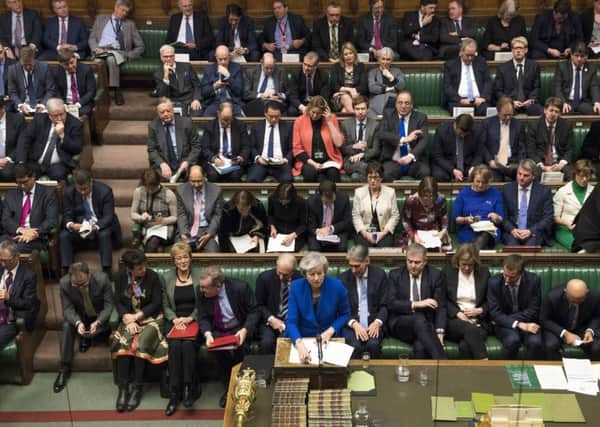Neil McNicholas: Let’s extend any mobile phone ban at schools to our MPs – and Parliament


My initial reaction to the suggestion was, fine, but how about Mr Gibb putting his own house in order, or rather his own House – the House of Commons – by advocating a total ban on smartphones and their use there too.
It always seems to me to be the height of ignorance to see MPs texting on their phones while other Members are delivering speeches, or even just asking questions, to which they should be paying 100 per cent attention.
Advertisement
Hide AdAdvertisement
Hide AdEven when the Prime Minister is on her feet speaking to the House, there are MPs busily texting or tweeting – it’s just plain rude and bad manners.
Whilst Nick Gibb’s statement possibly reflected current efforts to try to make social media operators more accountable for potentially harmful online content to which vulnerable children and teenagers are being exposed, his primary concern appears to be the amount of time that youngsters are spending on their phones.
A rather worrying phrase he used was “device dependency”. Did he simply mean in the sense of young people being dependent on their phones, or in the much darker sense of becoming addicted to them?
If it was the former, there was a time before the age of mobiles when we – and not everyone by any means – only had phones in our homes. If someone was trying to call us and we were out, they would just have to keep trying until we were in and we answered. In the meantime the world kept on turning. Why is there now a need to be instantly available – answering calls and texts and making them and sending them? We used to manage just fine; why can’t we manage now?
Advertisement
Hide AdAdvertisement
Hide AdOr was Mr Gibb actually implying that young people may be developing an addiction to their smartphones? If he was, the situation is no less applicable to a great many adults also – including, so it would appear, his fellow MPs in the House of Commons. How long could the average “user” go these days without their mobile phones before turning into a quivering mess deprived of their electronic fix?
In response to Mr Gibb’s suggestion, his superior Damian Hinds, the current Education Secretary, said: “If you just have a ban, what do you do about kids who are in school after hours? Or what do you do on a school trip? Or what do you do with a child who has particular medical needs, how do you deal with that?”
The answer would seem to be to do what we always used to do before the advent of mobile phones. If a pupil was kept late at school, or had some sort of emergency need, the school secretary would call the parents on the school’s phone.
If a pupil was on a school trip, why would they need to phone home? Once upon a time it wouldn’t have crossed their mind, content, as they would have been, to be out-of-touch of their parents. And if they did need to phone home for some reason, they would have used a public phone box as everyone else did back then.
Advertisement
Hide AdAdvertisement
Hide AdThe other addiction we have developed is that these days no time can be allowed to pass between thinking about making a phone call or texting, and actually doing it. If a call or a text is received, there is also an equal compulsion to answer it immediately – even if the recipient is in the middle of a conversation with someone else.
If two people were talking and I butted into their conversation, it would be considered the height of bad manners, but I could be talking to someone and their mobile rings, and they will answer it immediately regardless and then proceed to talk to that other person (who actually isn’t even there) as if I had suddenly ceased to exist.
And this is what we see happening in Parliament. Someone is speaking, but others will be texting (which is just as rude as actually talking) as if what the speaker is saying is no longer of any interest. That’s the sort of rudeness and lack of consideration that we should be concerned about as a society – whether it means curbing the use of mobile phones in schools to teach our young people courtesy and manners, or their use in the House (whether the Commons or the Lords) to teach politicians the same.
Neil McNicholas is a parish priest in Yarm.